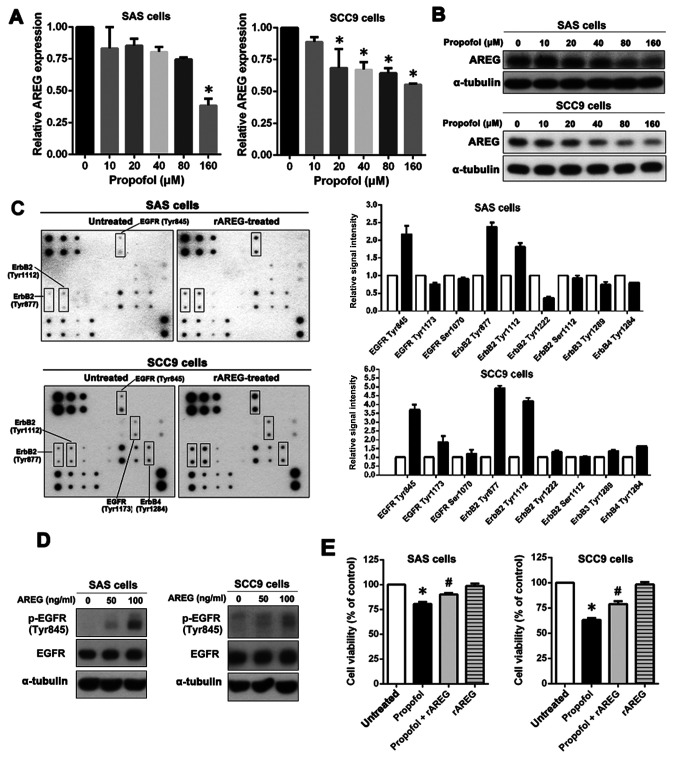Figure 4.
Propofol inhibits AREG expression in oral squamous cell carcinoma cells, which may reduce the activation of its related signaling pathways and lead to cell apoptosis. (A) mRNA and (B) protein expression levels of AREG were determined by reverse transcription-quantitative PCR (n=4-6) and western blotting (n=3), respectively. SAS and SCC9 cells were treated with propofol (10–160 µM) for 48 h. *P<0.05 vs. untreated control. (C) SAS and SCC9 cells were stimulated with or without rAREG (50 ng/ml) for 15 min. The activation of EGFR was determined using a human EGFR phosphorylation antibody array. (D) SAS and SCC9 cells were stimulated with different concentrations of rAREG (50–100 ng/ml) for 15 min and then the cell lysates were analyzed by western blotting using anti-p-EGFR (Tyr845) or anti-EGFR antibodies (n=3). (E) SAS cells were pretreated with rAREG (50 ng/ml) for 4 h and then stimulated with 40 µM propofol for 48 h (n=4). SCC9 cells were pretreated with rAREG (100 ng/ml) for 4 h and then stimulated with 80 µM propofol for 48 h (n=4). Cell viability was determined using an MTT assay (n=4). Data are presented as the mean ± SEM. *P<0.05 vs. Untreated control group; #P<0.05 vs. propofol. AREG, amphiregulin; rAREG, recombinant AREG; p, phosphorylated.

